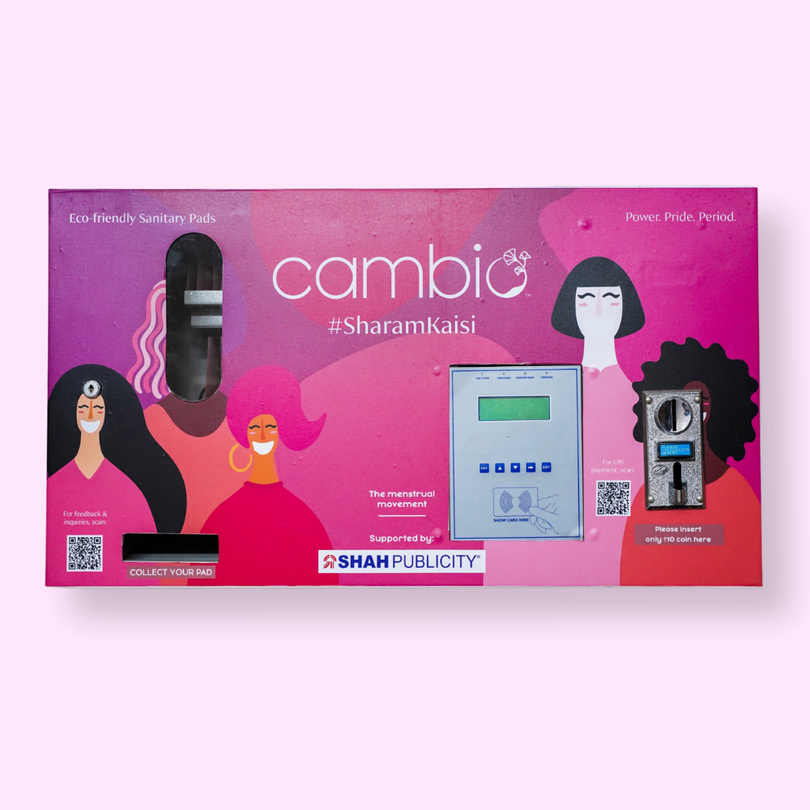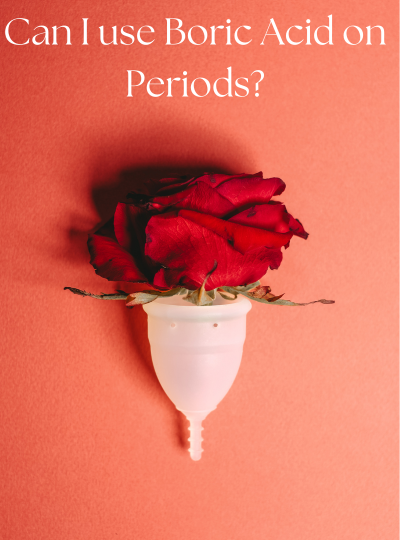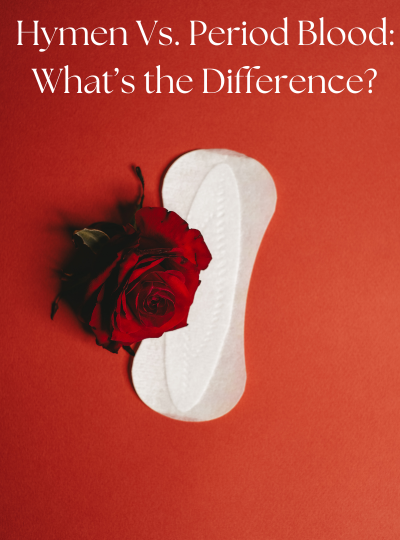Can I use boric acid on my periods?
When it comes to feminine hygiene, it's essential to make informed decisions about what we put in and around our bodies. With the growing popularity of alternative remedies, you may have heard about using boric acid during your period. In this informative piece, we will explore the potential benefits, risks, and guidelines associated with using boric acid during menstruation.
Also read - Spotting vs Periods
What is Boric Acid?
Boric acid is a naturally occurring compound that has been used for various purposes, including as an antiseptic and antifungal agent. It is available in the form of suppositories or capsules, often used to treat vaginal infections such as bacterial vaginosis and yeast infections.
What is Boric Acid Used for?
While boric acid is primarily recognized for its effectiveness in treating vaginal infections, some women wonder if it can be used during their period. However, it is important to note that there is limited scientific evidence to support the use of boric acid specifically during menstruation. Therefore, it is crucial to consult with your healthcare provider before considering any new product or treatment.
Also read - Can You Get Waxed During Periods?
What are the safety measures one must take while using boric acid?
If boric acid is recommended by a healthcare professional for a specific condition, it's important to follow their guidance and take appropriate safety measures. Here are some general safety measures to consider when using boric acid:
- Consultation with a Healthcare Professional:
- Only use boric acid under the guidance of a healthcare professional. Do not self-diagnose or self-treat without consulting a doctor.
- Dosage and Application:
- Use the recommended dosage as prescribed by your healthcare provider.
- Follow the specific instructions provided by your healthcare professional regarding the application of boric acid, whether it's in the form of capsules, creams, or suppositories.
- Cleanliness:
- Wash your hands thoroughly before and after handling boric acid.
- Avoid Ingestion:
- Do not swallow boric acid. It is meant for topical use in the vagina and should not be ingested.
- Allergic Reactions:
- Be aware of any signs of an allergic reaction, such as itching, redness, swelling, or difficulty breathing. If you experience any of these symptoms, seek medical attention immediately.
- Avoid Broken Skin or Open Wounds:
- Do not use boric acid on broken or irritated skin. It is intended for use in the vagina and should not be applied to areas with open wounds or sores.
- Pregnancy and Breastfeeding:
- If you are pregnant or breastfeeding, inform your healthcare provider. Boric acid may not be recommended in certain situations.
- Side Effects:
- Be vigilant for any unexpected side effects and report them to your healthcare provider. Side effects may include increased irritation, burning, or discharge.
- Storage:
- Store boric acid products according to the instructions on the packaging, and keep them out of reach of children.
- Follow-Up:
- Attend any follow-up appointments recommended by your healthcare provider to assess the effectiveness of the treatment and address any concerns.
Also read - How to Delay Your Periods?
How to use boric acid during periods?
It is not recommended to use boric acid during periods However, if a healthcare professional has recommended the use of boric acid for a specific condition and provided instructions, here are some general guidelines for the insertion of boric acid capsules:
Wash Hands:
Begin by washing your hands thoroughly with soap and water.
Prepare the Capsule:
If your healthcare provider has prescribed boric acid in capsule form, prepare the capsule as directed.
Position Yourself:
Find a comfortable position, such as lying down or squatting, to make the insertion easier.
Insert the Capsule:
Gently insert the boric acid capsule into the vagina using your fingers. It's typically recommended to insert it as deeply as possible without causing discomfort. It is not at all recommended to take boric acid capsule orally as it can cause gastrointestinal side effects like nausea, diarrhea, stomach ache, and vomiting. So it is always recommended to insert boric acid capsule into your vagina.
Use Panty Liners:
Due to potential watery discharge after the insertion, you may want to use panty liners to manage any excess fluid. This is especially relevant during menstruation.
Avoid Tampons or Menstrual Cups:
Refrain from using tampons or menstrual cups for 24 to 48 hours after inserting the boric acid capsule. Instead, use menstrual pads during this time.
Avoid Sexual Activity:
It's usually advised to abstain from sexual activity during periods, including the use of sex toys, for 24 to 48 hours after inserting boric acid.
What are the alternative options for boric acid on period?
Here are some general alternatives and considerations:
Over-the-Counter Antifungal Medications:
For yeast infections, over-the-counter antifungal creams, suppositories, or oral medications may be available. These typically contain ingredients such as miconazole or clotrimazole.
Probiotics:
Probiotics, either in the form of supplements or foods like yogurt, can help maintain a healthy balance of bacteria in the vagina and may be beneficial for preventing and treating certain vaginal issues.
Maintain Good Hygiene:
Proper hygiene practices, such as regular gentle cleansing with mild soap and water, can help prevent and manage vaginal discomfort.
Avoid Irritants:
Avoid using harsh soaps, douches, or scented products in the genital area, as they can disrupt the natural balance of the vagina.
Cotton Underwear:
Wear breathable cotton underwear to promote good airflow and minimize moisture, which can contribute to the growth of fungi and bacteria.
Stay Hydrated:
Drinking plenty of water helps maintain overall health, including the health of the urinary and reproductive systems.
Medical Evaluation:
If you experience persistent or recurrent symptoms, consult with a healthcare professional for a proper diagnosis and treatment plan.
Also read - Can We Eat Papaya During Periods?
Conclusion:
While boric acid has shown effectiveness in treating certain vaginal infections, its use during menstruation requires careful consideration. It is essential to prioritize your health and consult with a healthcare professional before using any new product or treatment. By seeking professional guidance, you can make informed decisions and ensure your well-being during your menstrual cycle.
Read more










